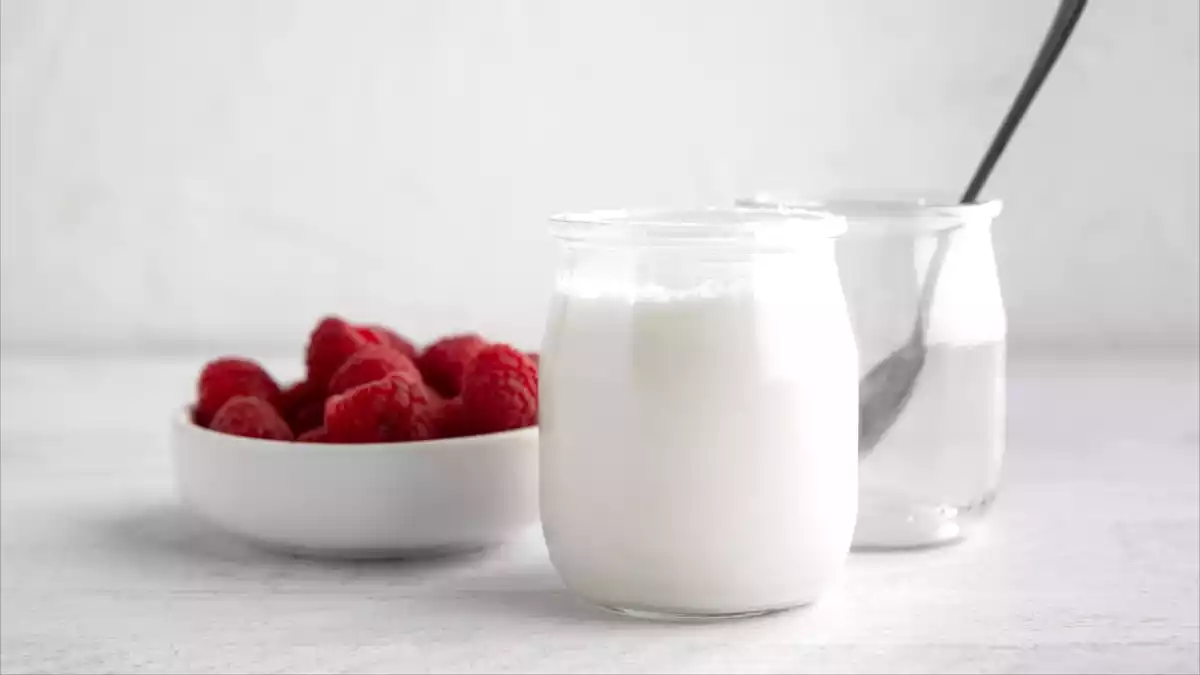Plant vs. dairy yoghurts: which is really better?

It's a divisive debate in the fridge: should we stick with good old plain yoghurt, or succumb to the new plant-based alternatives with almond, soy or coconut? On the shelves, the range of products has expanded considerably. And with labels such as "lactose-free", "100% plant-based" or "source of probiotics", it's not always easy to know which way to turn the spoon.
So, classic yoghurt or a plant-based version :)
Dairy yoghurt: still a classic today
Milk-based yoghurt (cow's, sheep's, goat's) is rich in complete proteins, calcium and often probiotics - the famous good bacteria that support the intestinal flora.
It's also a source of vitamin B12, found almost exclusively in animal products. In short, a good point for those who are not lactose intolerant or allergic.
But... it all depends on the version you choose! Flavored, sweetened, fruit or drinkable yogurts can contain up to 0.5 oz/15g of sugar per pot, the equivalent of three sugar cubes. It's better to opt for plain yoghurt, which you can sweeten yourself if necessary :)
Plant-based yoghurts: a (not so) neutral alternative
Plant-based yogurts, on the other hand, are made from plant-based beverages (soy, coconut, almond, oat...), fermented with lactic ferments. Good news: they are suitable for people with lactose intolerance or following a vegan diet.
On the plus side:
- They are easier to digest for those sensitive to milk,
- Their production often requires fewer natural resources (Water, CO₂, etc.),
- And some soy versions are rich in protein (even if it's not always as complete as in animal products).
But here again, beware of the ingredients list: many plant-based yogurts are enriched with sugars, thickeners, or artificial flavors to compensate for a sometimes blander taste. And not all yogurts are enriched with calcium or B12, which can be a long-term concern in a strictly plant-based diet!
Taste and texture are a matter of habit.
Let's face it: at first, a vegetable yogurt made with coconut or almond doesn't have quite the same texture or taste as one made with cow's milk. But you soon get used to it, especially with a good homemade granola or some fresh fruit on top.
Textures vary enormously from one brand to another, so the best thing to do is to try it out! Some plain soy yogurts are surprisingly smooth and very similar to classic yogurt. Others, such as coconut-based yogurts, have a thicker texture and a stronger taste - perfect for lovers of exotic desserts.
Verdict: which is "better"? Depends on who it's for!
- For those with lactose intolerance or following a vegan diet, vegan yoghurt is an excellent alternative.
- When it comes to filling up on calcium and probiotics, classic plain yogurt is still a step ahead... as long as it's well tolerated.
- For a more eco-responsible diet, plant-based versions (especially with locally grown soya) have a lighter environmental impact.
To sum up? One is not "better" than the other in absolute terms. The most important thing is to look at the labels, limit the sweet versions and choose what suits your body, your lifestyle... and your taste buds :)
You may be interested in:
 Adèle Peyches
Adèle Peyches


Comments